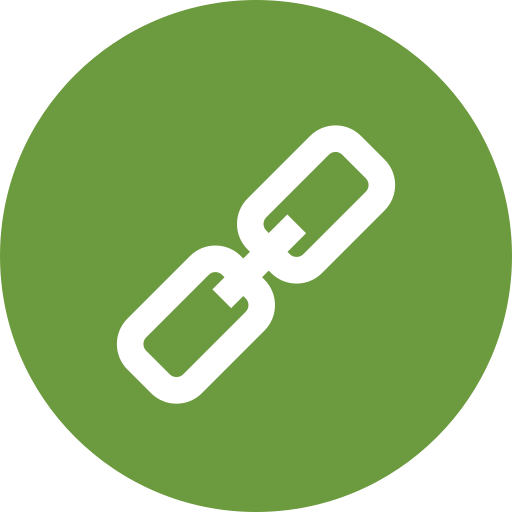| Product name | Per Pill | Savings | Per Pack | Order |
|---|---|---|---|---|
| 30 pills | $1.25 | $37.39 | ADD TO CART | |
| 60 pills | $0.98 | $15.91 | $74.79 $58.88 | ADD TO CART |
| 90 pills | $0.89 | $31.82 | $112.18 $80.36 | ADD TO CART |
| 120 pills | $0.85 | $47.73 | $149.58 $101.85 | ADD TO CART |
| 180 pills | $0.80 | $79.55 | $224.37 $144.82 | ADD TO CART |
| 270 pills | $0.78 | $127.28 | $336.55 $209.27 | ADD TO CART |
| 360 pills | $0.76 | $175.01 | $448.73 $273.72 | ADD TO CART |
Triamterene 75 mg is a medication used to treat edema (swelling caused by excess fluid) and hypertension (high blood pressure). It belongs to a class of drugs known as diuretics, which help the body get rid of excess fluid and salt. In this article, we will delve into the world of Triamterene 75 mg, exploring its uses, benefits, and potential side effects. We will also discuss how to order Triamterene, buy Triamterene, and purchase genuine Triamterene on-line.
What is Triamterene 75 mg?
Triamterene 75 mg is a potassium-sparing diuretic, which means it helps the body retain potassium while removing excess fluid and salt. This medication is often used to treat conditions such as:
- Edema (swelling caused by excess fluid)
- Hypertension (high blood pressure)
- Congestive heart failure
- Nephrotic syndrome (a kidney disorder that causes excess protein in the urine)
How does Triamterene 75 mg work?
Triamterene 75 mg works by blocking the action of a hormone called aldosterone, which regulates the balance of fluids and electrolytes in the body. By blocking aldosterone, Triamterene 75 mg helps the body get rid of excess fluid and salt, while retaining potassium. This leads to a decrease in blood pressure and a reduction in swelling.
Benefits of Triamterene 75 mg
The benefits of Triamterene 75 mg include:
- Effective treatment of edema and hypertension: Triamterene 75 mg has been shown to be effective in reducing swelling and lowering blood pressure.
- Potassium-sparing: Triamterene 75 mg helps the body retain potassium, which is essential for maintaining healthy heart function and muscle contractions.
- Convenient dosing: Triamterene 75 mg is available in a once-daily dosing regimen, making it easy to incorporate into your daily routine.
How to order Triamterene 75 mg
If you are interested in ordering Triamterene 75 mg, you can do so through a variety of online pharmacies. When buying Triamterene 75 mg, make sure to choose a reputable online pharmacy that offers cheap Triamterene 75 mg prices and fast delivery. You can also purchase genuine Triamterene on-line with a valid prescription from your doctor.
Table 1: Comparison of Online Pharmacies
| Online Pharmacy | Price | Delivery Time |
|---|---|---|
| Pharmacy A | $10.99 | 3-5 business days |
| Pharmacy B | $12.99 | 2-3 business days |
| Pharmacy C | $9.99 | 5-7 business days |
Side Effects of Triamterene 75 mg
While Triamterene 75 mg is generally well-tolerated, it can cause some side effects, including:
- Dizziness and lightheadedness: Triamterene 75 mg can cause a sudden drop in blood pressure, leading to dizziness and lightheadedness.
- Headache and fatigue: Some people may experience headache and fatigue when taking Triamterene 75 mg.
- Nausea and vomiting: Triamterene 75 mg can cause stomach upset, leading to nausea and vomiting.
Precautions and Warnings
Before taking Triamterene 75 mg, it is essential to inform your doctor of any medical conditions you have, including:
- Kidney disease: Triamterene 75 mg can worsen kidney function in people with pre-existing kidney disease.
- Liver disease: Triamterene 75 mg can cause liver damage in people with pre-existing liver disease.
- Pregnancy and breastfeeding: Triamterene 75 mg should be used with caution in pregnant and breastfeeding women.
List of Precautions and Warnings
- Inform your doctor of any medical conditions you have
- Use Triamterene 75 mg with caution in pregnant and breastfeeding women
- Monitor your blood pressure and electrolyte levels regularly
- Avoid taking Triamterene 75 mg with other medications that can interact with it
Ordering Triamterene 75 mg with Amex
If you want to order Triamterene 75 mg with Amex, you can do so through a variety of online pharmacies. When buying cheap Triamterene 75 mg, make sure to choose a reputable online pharmacy that offers generic 75 mg Triamterene visa and fast delivery. You can also purchase genuine Triamterene on-line with a valid prescription from your doctor.
Conclusion
Triamterene 75 mg is a medication used to treat edema and hypertension. It belongs to a class of drugs known as diuretics, which help the body get rid of excess fluid and salt. When ordering Triamterene 75 mg, make sure to choose a reputable online pharmacy that offers cheap Triamterene 75 mg prices and fast delivery. Remember to inform your doctor of any medical conditions you have and monitor your blood pressure and electrolyte levels regularly. With the right precautions and warnings, Triamterene 75 mg can be an effective treatment for edema and hypertension.
Frequently Asked Questions
- Q: Can I buy Triamterene 75 mg without a prescription? A: No, you need a valid prescription from your doctor to buy Triamterene 75 mg.
- Q: Can I order Triamterene 75 mg with Mastercard? A: Yes, you can order Triamterene 75 mg with Mastercard through a variety of online pharmacies.
- Q: Is generic 75 mg Triamterene available? A: Yes, generic 75 mg Triamterene is available through a variety of online pharmacies.
Order Now
If you are interested in ordering Triamterene 75 mg, you can do so through a variety of online pharmacies. Remember to choose a reputable online pharmacy that offers cheap Triamterene 75 mg prices and fast delivery. With the right precautions and warnings, Triamterene 75 mg can be an effective treatment for edema and hypertension. Buy Triamterene 75 mg today and start managing your edema and hypertension symptoms!
Diuretics are a class of medications that play a crucial role in the management of various cardiovascular and renal disorders. Among the different types of diuretics, potassium-conserving (antikaliuretic) diuretics have gained significant attention due to their unique mechanism of action and relatively weak natriuretic properties. In this article, we will delve into the world of potassium-conserving diuretics, exploring their mechanism, clinical applications, and benefits.
What are Potassium-Conserving Diuretics?
Potassium-conserving diuretics, also known as antikaliuretic diuretics, are a type of diuretic that helps to conserve potassium ions in the body while promoting the excretion of water and sodium. These diuretics work by inhibiting the reabsorption of sodium and chloride ions in the distal convoluted tubule and collecting ducts of the kidneys, thereby reducing the amount of potassium ions excreted in the urine.
Mechanism of Action
The mechanism of action of potassium-conserving diuretics involves the inhibition of the sodium-potassium-chloride cotransporter in the thick ascending limb of the loop of Henle. This inhibition leads to a decrease in the reabsorption of sodium and chloride ions, resulting in an increase in the amount of sodium and water delivered to the distal convoluted tubule and collecting ducts. In the collecting ducts, the sodium ions are reabsorbed in exchange for potassium ions, which are then retained in the body.
| Diuretic | Mechanism of Action | Site of Action |
|---|---|---|
| Spironolactone | Antagonizes aldosterone receptors | Collecting ducts |
| Amiloride | Inhibits sodium channels | Collecting ducts |
| Triamterene | Inhibits sodium channels | Collecting ducts |
Clinical Applications
Potassium-conserving diuretics have several clinical applications, including:
- Hypertension: Potassium-conserving diuretics are often used in combination with other antihypertensive medications to manage hypertension.
- Heart Failure: These diuretics are used to reduce fluid overload and improve symptoms in patients with heart failure.
- Nephrotic Syndrome: Potassium-conserving diuretics are used to manage edema and proteinuria in patients with nephrotic syndrome.
- Hyperaldosteronism: These diuretics are used to manage hypertension and hypokalemia in patients with hyperaldosteronism.
Benefits of Potassium-Conserving Diuretics
The benefits of potassium-conserving diuretics include:
- Reduced risk of hypokalemia: Potassium-conserving diuretics help to conserve potassium ions, reducing the risk of hypokalemia and its associated complications.
- Improved blood pressure control: These diuretics are effective in reducing blood pressure and improving cardiovascular outcomes.
- Reduced edema: Potassium-conserving diuretics are effective in reducing edema and improving symptoms in patients with heart failure and nephrotic syndrome.
- Mineralocorticoid receptor antagonism: Some potassium-conserving diuretics, such as spironolactone, have mineralocorticoid receptor antagonist properties, which can provide additional benefits in patients with heart failure and hypertension.
Common Potassium-Conserving Diuretics
Some common potassium-conserving diuretics include:
- Spironolactone: A mineralocorticoid receptor antagonist that is used to manage hypertension, heart failure, and hyperaldosteronism.
- Amiloride: A potassium-sparing diuretic that is used to manage hypertension and edema.
- Triamterene: A potassium-sparing diuretic that is used to manage hypertension and edema.
Side Effects and Interactions
While potassium-conserving diuretics are generally well-tolerated, they can cause several side effects, including:
- Hyperkalemia: Elevated potassium levels can occur, especially in patients with renal impairment.
- Gynecomastia: Spironolactone can cause gynecomastia in men.
- Dizziness and lightheadedness: Potassium-conserving diuretics can cause dizziness and lightheadedness, especially when standing up quickly.
Potassium-conserving diuretics can interact with several medications, including:
- ACE inhibitors: Concomitant use with ACE inhibitors can increase the risk of hyperkalemia.
- Angiotensin receptor blockers: Concomitant use with angiotensin receptor blockers can increase the risk of hyperkalemia.
- Nonsteroidal anti-inflammatory drugs: Concomitant use with nonsteroidal anti-inflammatory drugs can reduce the effectiveness of potassium-conserving diuretics.
Conclusion
In conclusion, potassium-conserving diuretics are a valuable class of medications that play a crucial role in the management of various cardiovascular and renal disorders. Their unique mechanism of action and relatively weak natriuretic properties make them an attractive option for patients who require diuretic therapy. By understanding the mechanism, clinical applications, and benefits of potassium-conserving diuretics, healthcare professionals can provide optimal care for their patients and improve outcomes.
Recommendations
Based on the available evidence, we recommend the following:
- Use potassium-conserving diuretics in combination with other antihypertensive medications to manage hypertension and improve cardiovascular outcomes.
- Monitor potassium levels regularly to minimize the risk of hyperkalemia.
- Use spironolactone with caution in patients with renal impairment and monitor for signs of hyperkalemia.
- Consider alternative diuretics in patients who experience significant side effects or interactions with potassium-conserving diuretics.
By following these recommendations and staying up-to-date with the latest evidence, healthcare professionals can provide optimal care for their patients and improve outcomes in the management of cardiovascular and renal disorders.
























